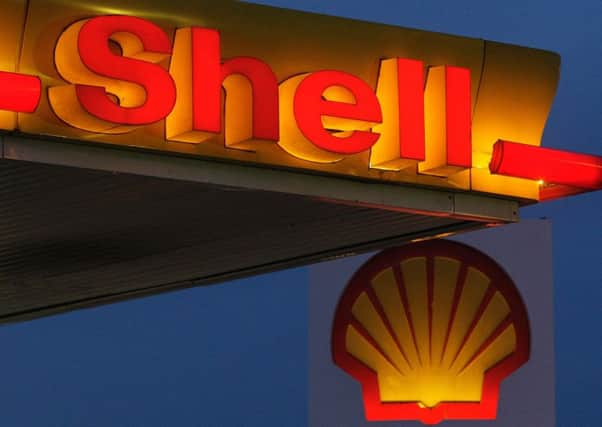Bill Jamieson: Dividend payouts turning into a game of roulette


I’m not quite sure when all that went out the window. But short-term single issue factors certainly predominate now. The UK market today is being driven by concerns over dividend payments – in particular by the oil giants BP and Royal Dutch Shell. Shares in both companies have suffered stomach-churning volatility over the past year due to oil price and dividend uncertainties. But last week saw ever more chips being piled on red as the ball flew round the roulette wheel.
BP unveiled a near-£4 billion annual loss, which sent its shares plunging before the market absorbed news that chief executive Bob Dudley declared he had no intention of cutting the dividend. The shares closed just 25p down on the week at a touch over 350p where they yield 7.6 per cent. It was a similar story at Shell, which announced an 80 per cent plunge in profits. Yet the £12.30 a share dividend is being held, leaving the A shares, at £15.35 , yielding a mouth-watering 8.1 per cent.
Advertisement
Hide AdAdvertisement
Hide AdIt’s understandable that the chief executives of giant companies are markedly reluctant to announce dividend cuts. Shell has not cut its dividend since 1945. And BP’s Dudley has to live with the gory memory of his predecessor, the late Bob Horton, who was dismissed just ahead of a cut in the dividend payout. So despite the firm intentions of the chief executives, how safe are the yields of both companies?
It is natural for investors to assume that chief executives know something that the lowly shareholder does not. But even assuming 3D vision among the men at the top, this smacks of an almighty gamble. It assumes a rally before too long in the oil price, a slump in oil supply and/or a recovery in oil demand, and a turn for the better in the global economy.
Shareholders now have their chips riding on a single factor – that the dividend commitments will be honoured and the payouts made. Now it may well be that the oil price will recover by the end of the year. But would the rally be strong enough, and convincing enough, to lift the black clouds over oil company earnings and the dividend which is critically reliant on them?
Similar doubts cloud payouts in the mining sector (where they have not been cut already) and in the banking sector, where Standard Chartered has already slashed its dividend. Share prices in major global banks hit new lows last week on concerns over slowing growth and that lower long-term interest rates have reduced the earning power of banks.
With market behaviour so volatile and dividend income – the mainstay of stock market performance – under a cloud, it’s little wonder private investors should be asking themselves whether they should be investing in individual shares. Many find they have too much to lose in today’s conditions.
In recent years the assumption has been that ever greater regulation, transparency and disclosure would enable private investors to make more informed choices and help to make share price behaviour less volatile.
But my sense is that rather the opposite has been the case. Back in the 1970s, there was no lack of imprudent behaviour by banks and instances of poor disclosure. But there is little evidence that today’s relentless round of quarterly reporting and telephone directory size annual reports have much improved investor understanding and clarity as to the trading outlook of the companies that produce them.
Investors who found reassurance in the cheerful, upbeat bulging annual 2006-07 annual reports of Royal Bank of Scotland, Northern Rock and Bradford & Bingley would have been grievously misled. I would say that for a number of reasons – not just the searing experience of the 2008-09 financial crisis – levels of trust among private investors are lower than they were 40 years ago
Advertisement
Hide AdAdvertisement
Hide AdFortunately, while risk cannot be eliminated, there is now a multitude of funds and investment trusts that can help investors mitigate their exposure to “one-off” high losses.
Indeed, we have a bewildering range of choice, enabling investors to finesse their degree of risk through cautious managed and globally diversified funds and trusts. Meanwhile, brave is the investor who thought oil company dividends would always be safe – and moved their chips accordingly onto those high risk squares.